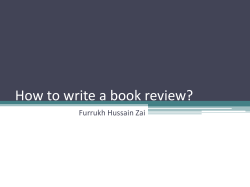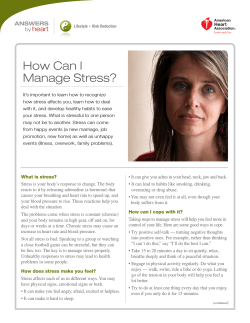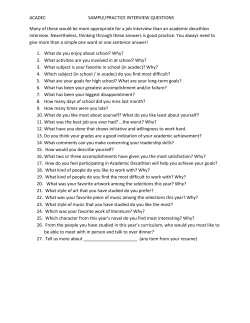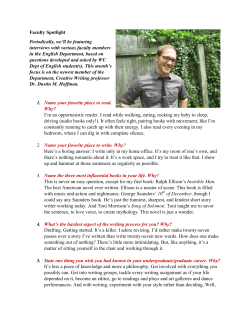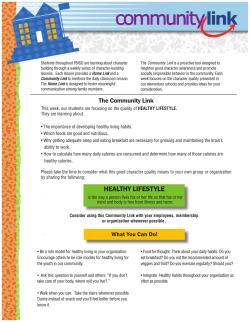
your Free Magic Words E-Book Here!
Crapfest? Aren’t you being a little harsh, Syl? Not from my perspective. 2014 has been rough in just about every way I can think of: physically, emotionally, spiritually, globally. Almost everyone I know has had a very difficult year. Even those who’ve felt rewarded admit that it was a hard climb to where they are. Isn’t that Awesome? I say that with no sarcasm (okay, maybe a tiny bit). If adversity is our greatest teacher, just think of what absolute freaking geniuses we’ll be by December 31. Even if you had a great year, you can still use this little guide. If 2014 treated you kindly it’s just as important to take stock and set a general direction for the twelve months to come. You don’t want to undo any positive progress by spinning in circles or backtracking. This is not a planner. It’s just a few helpful pages to give you some idea where you want to go this year – not a big To Do list, not a timeline or a breakdown, just some ideas and a way to look at the year that might put less pressure on you than all the go-‐getter “Let’s make 2015 your bitch!” planners out there. I find that it’s hard to strike a balance between making plans that are way too detailed and those that are way too vague. Concrete steps and action plans are great, but if all they do is overwhelm you, you’re no better off than if you’d hung out in your jammies eating Nutella with a spoon. Remind me to put that on my to-‐do list. Year's end is neither an end nor a beginning but a going on, with all the wisdom that experience can instill in us. ~Hal Borland 1 Let’s have a look at what went down during 2014 – the good, the bad, and the yummy. My favorite song or album of 2014: My favorite movie of 2014: My favorite TV show of 2014: The best book I read in 2014: The coolest place I went in 2014: Something I got better at in 2014: The tastiest thing I ate in 2014: My favorite celebrity in 2014: My role model for 2014: Something new I began in 2014: Something I ended in 2014: Something I didn’t do in 2014 that I wish I had done: My pet cause(s) in 2014: 2 To quote Doctor Who, “The way I see it, every life is a pile of good things and bad things. The good things don't always soften the bad things, but vice-‐versa, the bad things don't necessarily spoil the good things and make them unimportant.” Take a moment to think about 2014 as a whole – positive, negative, triumphant or tragic. Let go of your judgment for just a little while. You added both good things and bad things to your pile this year, and you did the best you could with what you had and what you knew at the time. The last 12 months are yours to learn from; you can walk away with a trunk full of regrets or a picnic basket of valuable new lessons. It’s up to you. 3 Every December dozens of downloadable goal-‐setting guides appear all over the internet – many free, many not, ranging from the “tough love” variety that treats you like a dim-‐witted child to the “woo woo” kind that involves calling yourself Lady this or Goddess that and looking at life through Barbie pink-‐colored glasses. Many of these well-‐meaning guides represent hours or even months of work on the part of the author, and many are absolutely beautiful in design and artwork – a worthy creative goal in and of itself, whether you’re talking about “New Year’s Resolutions” or “Sacred Woman Dreams.” There’s nothing at all wrong with trying to inspire people. I’ve tried most of them. I still do, because I lack all impulse control when it comes to downloading things from the internet. And whether tough-‐love or woo-‐woo or any shade of inbetween or hybrid thereof, not one has ever really done much for me. I’ve gleaned a tidbit or two from each, but once you strip away the glitter or the sweat, the principles are almost always the same or at least kissing cousins. We all want to make positive changes in our lives. Even the happiest person wants to be happier, and no, it’s not because we’re greedy – it’s because happiness depends largely on achievement. If we’re not striving for anything, we stagnate, and any serenity we’ve earned with all that hard work begins to sour. We have to keep learning, reaching, setting off from the Shire barefoot at a sprint. If you’ve ever met someone with zero ambitions, no dreams, just drifting in the same old life who seems happy with that, either they’re fooling themselves, or they smoke a shit ton of weed. Human nature is to move. To move is to change. Every electron dances, and those tiny dances together create the Genuine change universe. They don’t stop just because they’ve made a universe -‐ they keep creating. requires more of us But as I said, I’ve tried most of the popular sorts of goal-‐setting methods. The first thing I did was ditch the phrase “New Year’s Resolution.” than five minutes of Even if it’s a noble idea, our culture has installed guaranteed failure in the words themselves. Those walking shoes and that set of Learn Farsi drunken forethought. in 10 Minutes a Day CDs are gathering dust by February. Why? Well, aside from the general expectation of failure, people rarely make resolutions that really mean anything to them. The standard set of work out, lose weight, do such and such chore every day, is perfunctory, not passionate. A lot of NYR are made off the cuff at 11:59 pm on December 31 just before the confetti flies. 4 Most of the goal-‐setting systems you’ll find in books or on the internet have one thing in common that kind of kills it for me. No matter how sensible, how practical, or how inspiring they are, they put pressure on you to “get better,” “fix yourself,” make a “lifestyle change.” There are endless steps and lists and action plans. It gets overwhelming, thinking about creating your authentic happy creative sparkly wild awesome manic Pixie dreamgirl life all at once. That’s what always happened to me. I have a mental illness, and up until recently I was managing it terribly. I was doing the best I could, but I realized not long ago (only a couple of weeks in fact) that I was approaching the whole thing from an angle that wasn’t helping me. The fact is, my brain doesn’t process emotions the way a “normal” person’s does. What just seems like a fun challenge to you is a huge source of stress for me, and stress can very easily trigger what I’ll call an “episode,” either depressive or manic. The best thing for me to do is exactly what all the spiritual woman writers have been telling me for years: I have to be gentle with myself. That means no hardcore lifestyle changes – in fact it means no hardcore anything if I can help it. Life is hard enough already, isn’t it? My core needs nice soft pillows. Therefore, everything I have to say should be viewed from the perspective of you having to understand yourself, how your emotions work, how you accomplish things. Can you change? Of course you can! But you need to keep these things in mind: 1 – What changes are truly important to you? 2 – Are you trying to change, or not change, because that’s what you’re expected to do by family/friends/society? If this is true, allow me to share a profound mantra that I picked up during my studies. Whenever someone who supposedly loves you tries to maintain the status quo, meaning your status quo, by sabotaging your efforts or trying to convince you things were better as they were -‐ meaning better for them -‐ take several deep cleansing breaths and intone, “BULLSHIT.” If the strident methods of self-‐help gurus have failed you, or you’re tired of beating yourself up over milestones not met and boxes not checked, I invite you to give my idea a try. I found that in 2014 I no longer had the energy for Bucket Lists or in my case Leaky Bucket Lists. Oh, I still made lists of things I want to do, and tried various means of reaching my goals (none of which really panned out), but my attitude had 5 shifted. And now that I have better insight into my beleaguered bipolar brain, it’s shifted even more. I propose a less precise way, more of a drive in the countryside than a race to the finish. If you start where I’ve started, from there you can build and complicate things in whatever way suits your personality and circumstances. I’ve included a few ways to go about that sort of thing later, partly because you might need a little more direction when it comes time to get the year underway, and partly because I just love making printables. It’s a sickness. But for now, all that growth and change and the person you want to become can be summed up in a single word. 6 I don’t know – you tell me. Instead of setting complicated goals and punishing new “lifestyle improvements” that don’t improve much of anything (except perhaps the diet industry’s bank balance), we’re going to start just about as simply as you possible can, with a single word. Your Word of the Year is not a vow, or a resolution, or anything of the sort – call it a theme, if you like. It is the emotional and spiritual underpinning of all the other to-‐do lists you might make. When you need to make a decision or find yourself drawn to (or dragged toward) a change, you can ask yourself, “Does this action groove in line with my Watchword for 2015?” If the answer’s yes, awesome, go for it! If it’s no, well, how do you feel about that? Does the potential activity make you feel free and powerful, connected and real? Because that’s what your Watchword should do. Anything you choose this year that aligns with your word will lead you toward the life you want to create. The beauty of the single-‐word idea is that you can Anything you choose this pile layers on top of it all you want. From your word you can set goals, come up with creative year that aligns with your projects, follow your intuition; or you can simply keep your word in mind while you go about your word will lead you toward year, and see where it creeps in, because I can almost guarantee you it will. the life you want to Ever notice how you never hear the word “aardvark,” but then once someone mentions create. aardvarks, suddenly they’re everywhere? Your Word of the Year will be like that. Whether you think this is the universe poking you in the ribs or just a coincidence because of heightened awareness…well, does it really matter? What matters is that you’re aware of how your word moves in and out of your daily experience. The important thing is no matter what, don’t criticize yourself if your word ends up being the wrong one or you take action thinking it’s aligned and whoops! Not so much. This Watchword isn’t meant to be an iron clad anything. It’s a theme, and it’s 7 one you choose, which means if at some point you realize it was the wrong choice, you can choose again! It’s possible word 1 was you for the first part of the year and then something changed leading you to word 2. (I’d recommend just starting with a single word, though, not a handful or a phrase, just because the idea is to keep this as simple and fun as possible – if Goddess wants to hand you another word, or you decide to add another later, more power to you, but try to start with just one and see where you go.) What are some of the advantages of starting each year with a theme word? Your Word is Not Law. The problem with resolutions and vows and such is that they are, well, vows and such. They’re a way of giving your word, and even for the silly piddly stuff if you break that word you are whittling away at your own integrity. Why waste your integrity over something as dumb as five pounds? You owe your theme word nothing but awareness of how it guides your life. If you abandon it midway through the year, oh well – you might come to December and look back realizing, “Damn, my Word was all over everything I did and I just didn’t see until now.” That, too, is a valuable thing to learn – the value of listening. Your World Can Be Anything, & Only Has to Mean Something to You. Noun, verb, pronoun, adjective…a title, the first name of an icon you want to emulate, a food that reminds you of how you want your year to be…the sky’s the limit. Here are just a few I’ve heard over the years. Compassion Bloom Brave Raven Thaumaturgy She Pride Phoenix Dancing Prosper Purple Hildegard Redwood Kind Opening Release Embody Malala Completion Powerful Joy The next question of course, is, how do you find the right word for your year? 8 With the entire English language (or whichever you’re working in – or more than one!) surrounding you, how on Earth do you narrow down the field to a single word that will represent an entire year? You may already have one floating around in your head. If you do, that’s great! Go ahead and run through these brief exercises anyway, to see if something further crystallizes for you. As you come up with possibilities, write them here in this box; then cross them out or add stars and circles for emphasis where needed until a single word has made itself clear. Now, let’s begin with a moment of visualization -‐ nothing fancy, just a bit of play-‐ pretend. 9 Just for a moment, imagine 2015 as the best year of your life. Be outlandish -‐ imagine going on a trip round the world, running a marathon, having a baby, there are no limits! We’re not going for practicalities here. If you think owning your own Greek island would make 2015 perfect, imagine it. Now turn it down a notch and imagine yourself doing that thing you’ve been putting off or flunking at spectacularly for years. 2015 is your year to _______! Choose something you’ve been “meaning” to do, but haven’t -‐ and not something you are expected to do, like become a doctor in a family of doctors. This is your year, not your parents’. In both of these images, focus strongly on how you feel. What is at the heart of those desires? If 2014 was a year of uncertainty, maybe you want 2015 to be one of safety. Perhaps you’re longing for adventure after a year of same-‐old same-‐old. Compare both of your images, the outsized and the midsized, and find what they have in common. What is it you’re seeking underneath the guise of firm buns and sexy billionaires? Write it here. Just a few words, just to capture how your imagined future feels - and if there were any strong impressions, like a smell or a song playing in the background, jot that down too. If your visions are chaotic and you don’t feel like you “did it right,” write down what you imagined anyway. You’d be surprised how useful even the weirdest memory can be if you come back to it later. Now a few questions and thoughts. 10 1. What are some of your favorite quotes, lines of poetry, or song lyrics? Do any words jump out from them that feel resonant with the next year? Jot such words here: 2. Do you have a set of spiritual values or rules you adhere to (or would like to do better at adhering to) like the Wiccan Rede, the Ten Commandments, the Eightfold Path? Does any one item in that list feel like the thing to work on this year? Choose a word that fits the main idea and write it down. 3. When you look back at 2014, what’s one thing you wish you’d known, had, or experienced more of? 4. Think of your role models, gurus, or just favorite people. Describe them in five words or less. If you were to choose one to be your “2015 Idol,” who would it be, and what’s the most important thing about that person you want to emulate? Go through your answers and your notes from the previous page and circle any words that stick out. Write them in the box at the beginning of this section. If you have two that are very similar, take a moment to look them up in the dictionary and see if one more precisely fits what you’re searching for. If you’re lucky, you’ll get down to one quickly; but if you get it down to three or four, you can try a few things to narrow the field. 11 If you’re into divination, you could draw a card or Rune that represents your word, or even one for each candidate and see which one has the most positive reaction from your oracle. You could write the words on slips of paper and draw one. Throw darts. Ask a friend to pick the one she thinks suits you best right now. Write all three on a piece of paper and sleep with them under your pillow to see if your dreams have any suggestions. What you’re looking for is something to reach toward. It shouldn’t be too specific; you’re going to build specifics on top of it. You want a theme to invite into your year. When you finally settle on one word, write it out in the frame below -‐ make it big, make it count. The written word has always held both mystery and sanctity. Imagine the massive shift that occurred as humans realized they could make words stay. By writing something down, you make it concrete, even if it’s just an idea -‐ suddenly that idea has an anchor to the physical world. You’re setting an intention by doing so. The page following this section is a calendar for 2015; it’s meant to be printed out and hung up somewhere you’ll see it often. There’s a space at the bottom for you to write your word so you can think about it whenever you check the date, and ask yourself, “Am I doing anything to draw more of this into my life? What little thing could I do today that would get me started or push me forward?” Now that you’ve got a word of the year, let’s look at some things you can do with it. 12 You and Your Word: Getting to Know You Aside from writing your Watchword out on the aforementioned calendar, there are a lot of ways you can make it a visible, concrete reminder of what you want to draw to your year. 1. Make a vision board. Maybe they’ve got a bit of a cheesy reputation these days, but idea and vision boards go way back, and they’re very useful. Cut out, print, or handwrite your word in the center of a piece of poster board or cardboard (whatever size you like, though if you’ve never done anything like it I’d suggest keeping it to 9x12” or thereabouts) and then go through magazines and the internet for images that evoke that word. They could be pictures of people actually living by your word, or achieving things that you feel are connected; they could be symbols, phrases, even colors or patterns. Nobody has to get it but you -‐ it’s all well and good to say owls symbolize wisdom, but if you think they’re terrifying and gross, you might want to seek wisdom elsewhere. Be deliberate in your choices. Don’t just slap any old thing down to fill the space. If you’re intimidated by the blank sheet, paint it, or glue wrapping paper or decorative paper over it then stick your word on top. Having a background can help a lot to get your scissors moving. Hang your board somewhere you’ll see it and remember what you’re trying to find. You may discover that midway through the year you want to make a new one to reflect the changes over the last six months; or hell, you might have ditched your original Watchword and found another. Again, you’re not being graded here. It has to resonate with you or it’s useless. If cutting/pasting/printing isn’t your thing, there’s always the digital model of a vision board: Pinterest, or Polyvore, or similar. I like having a physical object to look at, but I also have a lot of pin boards -‐ and those boards can change regularly without much 14 ado. You can also have more specific boards that are sort of sub-‐categories of the main word; we’ll talk more about goal setting here in a bit. 2. Create a quote or guru board. Remember those quotes and lyrics? You could also make a board out of those, or keep a small journal in your bag where you write down quotes and phrases that make you think of your Watchword. These quotes could come from anywhere, from sacred texts to text messages to conversations overheard at Starbucks. Wisdom comes from everywhere -‐ even the biggest idiot has some stuffed in a pocket somewhere waiting to be found. Also you could take those role models I mentioned and do the same with them -‐ or place images of them, perhaps with quotes, around your house. Sort of like sticking a cut out of a model to the fridge to stop you from eating, only less psychologically damaging, and something that might actually work, like having a Buddhist monk smiling at you over where you keep your tea-‐making things, or Madonna near your yoga mat. Again, only you have to make sense of it. If keeping an image of Olaf from Frozen on your fireplace mantel reminds you to have a warm heart, more power to you. Just don’t let the little guy melt. 3. Use your word as a mantra or meditative trigger. Spend time in meditation repeating your word (silently or aloud, whatever suits you) and contemplating what it means to you. Using “peace” as an example, imagine that as you repeat it, the state of being that is “peace” in your mind settles over and around you like warm sunlight, or a cozy blanket, leaving you in a peaceful place. If you do this frequently, you’ll find that just thinking about your word in the course of the day brings that feeling forward, and you can use it as a trigger – in times of stress you duck into the restroom stall, take five or six deep breaths, and repeat your word a few times to invoke it. This is a surprisingly powerful, and surprisingly easy, way to bring your word to fruition. 4. Create a playlist of songs that feel or sound like your Word. Obviously this will be easier with some than others. Don’t feel bound to lyrics – you might just connect the overall sound of a piece with a particular idea or behavior, and 15 that emotional and memory connection is what matters. It’s sort of like making a musical vision board. For last year's words belong to last year's language And next year's words await another voice. And to make an end is to make a beginning. ~T.S. Eliot You and Your Word: Setting Goals As I said, you don’t have to do a thing more with your word than make it your own, but there are ways to use it throughout the year that you might find useful. A Watchword is handy for deciding what goals are important to you – when you think about changing something in your life, ask yourself, does this change align with my Word of the Year? You expressed your highest and deepest self when you chose it, even if you didn’t put much thought into it. Declaring that something will be the guiding theme of an entire year is a big deal to your subconscious, trust me. When an opportunity arises over the next twelve months, take a moment to get into that meditative state or even just grab a quiet moment and consider the idea in the context of your theme. When you put the two together, how do you feel? You may get a big internal YES! Or NO! or you might get tingles. Most telling is a feeling of being bound – of chains or rope tightening around your chest, or just a sensation of shrinking back. Does the idea of taking that opportunity make you feel bound or free? Always go for free if at all possible. If you’re the sort who likes to start the year with resolutions or goals or one-‐year bucket lists, the page after this section is for you – several different areas of life are represented, and you can decide what you want to accomplish in 2015 in each. Each 16 of these could be directly related to your Watchword – for “peace,” your spiritual goal might be a daily prayer practice – or they could just fit in with a life based on your word, such as volunteering at a women’s shelter to help people feel safe again in the hopes that it will lead them toward peace. You can come at it from any direction that speaks to you. So, take a few minutes to consider the goals page, and see if anything jumps into your mind to write down. Then put it away for a while and just let your word percolate in your mind until it has more suggestions for you. It might not, or it might have a long list of activities to pull you (occasionally kicking and screaming) toward it. You and Your Word: Achievements and Habits Everyone has a daily routine, and humans being creatures of habit we will most often gravitate toward the familiarity of repetitive behavior. Naturally we all want to change our habits from time to time – and we all find it incredibly difficult. If change were easy there would be no self-‐help books. Your Word of the Year is, as I said, meant to be a low-‐pressure concept. It can in fact be entirely passive if you want it to be. If you want to make measurable progress in any area of life, however, you need a measurable outcome to aim for, and more active participation in the attainment of that outcome, so at some point you will probably be inclined to set goals. In my way of thinking there are two types of goals you can create based on your word: Achievements These are one-‐shot goals like finishing a novel, saving up to buy a new house, or simply walking into Mordor. In theory at least once you’re done you’re done, although in reality you may have to set the same goal again later; or, this achievement might be the first step in a series of goals. An achievement might also in itself be a step toward another goal. The main thing is that it has an end in sight, even if that end is years away. Achievements can be intimidating, but the going wisdom these days is that if you make it something specific and set it on a timeline, you can break it down into smaller elements and focus on one baby step at a time. If you have any sort of chronic illness you probably know how this works: with my depression, for example, some days the achievement of going to the grocery store might as well be climbing Kilimanjaro with 17 a backpack full of ferrets, but if I concentrate on one thing at a time, I can usually get there, even if it takes all day. So first I get out of bed, then brush my hair, then find some socks, and so forth. Habits As you might guess, habits are an ongoing, hopefully permanent kind of goal. The main difference between habits and achievements is what makes habits so challenging: they lack a deadline. What I’ve discovered over the years is that huge sweeping statements like “I’m going to eat healthy/exercise/meditate every day forever!” feel grand and impressive, but never last past the first engagement with the enemy (meaning February). The best way to overcome this it turns out is by doing the same thing you’d do with an achievement: break it down into chunks. The most common method is the 30 Day Challenge method – you set a goal of performing the habit for 30 days, based on the idea that it takes that long to make something a habit. I don’t know how true that is – I think it depends entirely on what the habit is and how you as an individual deal with accomplishing tasks – but a month does have its advantages. It is a unit of time we’re all used to, it’s a division on every calendar and therefore visually discrete, and it’s long enough to overcome both the initial burst of enthusiasm and a couple of weeks of “God, why am I doing this again?” You could of course start with a week, or whatever interval suits you; the important thing is that when you reach the end of that period, you evaluate your progress and then set another goal, say 30 more days. After a few months, you’ll find your new habit has become part of your life – or you realize it’s inappropriate for you in some way and either tweak the goal, change your approach, or discard it altogether. After the goal worksheet at the end of this section you’ll find a 30 Day Challenge sheet to print out and use if you like. With both achievements and habits, it’s a good idea to create some form of accountability, which is why I’ve included the challenge sheet; you can stick it on your fridge or bulletin board so it’s visible either just to yourself or for everyone you live with. For some people crossing off a square is sufficient to keep them honest, but you might want to keep a journal, make regular reports to a friend, or even post on a blog or your social media so the whole internet will be able to see if you’re living by your word. 18 Some Examples Betty’s Word of the Year: Adventure Goals based on her word: Financial – Setting up a savings account just for new and spontaneous experiences or travel (achievement, whereas putting $100 in savings every month for that account would be a habit) Spiritual – Taking a trip to India to visit an ashram (achievement) Some steps she might take: 1 – Researching airfares to India 2 – Applying for a visit to the ashram 3 – Buying a case of mosquito repellant Social – Taking a Russian language class (achievement); setting up a standing appointment with two friends to try a new restaurant every month (habit) Veronica’s Word of the Year: Poetry Goals based on her Word: Creative – Writing one poem a week for three months (achievement or habit depending on if it kept going) Social – going to a reading (achievement) or taking part in an open mic night (achievement that could become a habit) Intellectual – Choosing a poem per month and researching its author, its origins, and the traditional literary meanings assigned to it (same as previous); discarding all that and arriving at her own meaning (achievement) Physical – Getting her favorite line from “The Raven” tattooed on her buttcheek (achievement) 19 As 2014 stumbles forward and falls on its face at the finish line, I hope this little workbook has given you a few ideas on how to make 2015 great without driving yourself insane with the stress of Doing It All Right Freaking Now. I’ve learned over the years that attempting enormous sweeping change all at once is a For all that has been – Thanks. good way to make my serotonin levels say “piss off” and hide under the furniture. It For all that shall be – Yes. works a lot better to approach change sideways like a skittish colt, using something as simple as a Word of the Year that is ~ Dag Hammarskjöld relatively low pressure and then building gently and quietly on top of it one block at a time. Some people are in-‐with-‐both-‐feet types, and I’ve tried to be, but it turns out that kind of drama just sets off my fight-‐or-‐flight response and that response is heavily weighted toward flight. Learning how I adapt (or don’t, in most cases) to change has been a tough but valuable lesson this past year, and I’m looking forward to applying that knowledge in 2015. So here’s to 2014: Thank you for the learning experience, now get the hell out. And to 2015: Welcome! May we share a great adventure together for the coming 425,600 minutes. Happy New Year, 22 Other Works by Dianne Sylvan The Shadow World urban fantasy series: Queen of Shadows Shadowflame Shadow’s Fall Of Shadow Born Shadowbound The Agency urban fantasy series, volumes 1-‐5 (Kindle only) Nonfiction: The Circle Within: Creating a Wiccan Spiritual Tradition The Body Sacred E-‐Books: Becoming a Spiritual Nomad: a Six-‐Week e-‐Course Ahimsa Noms: Vegan Recipes and Kitchen Witchery A Holy Instrument of Joy: 14 Days of Ecstatic Dance For more information about her work and to poke around Sylvan’s blog, visit her website at http://www.diannesylvan.com -‐ her Facebook fanpage at http://www.facebook.com/DianneSylvan, or her Twitter, @DSylvan. All text and artwork ©2014 by Dianne Sylvan. For personal use only. 23
© Copyright 2025






